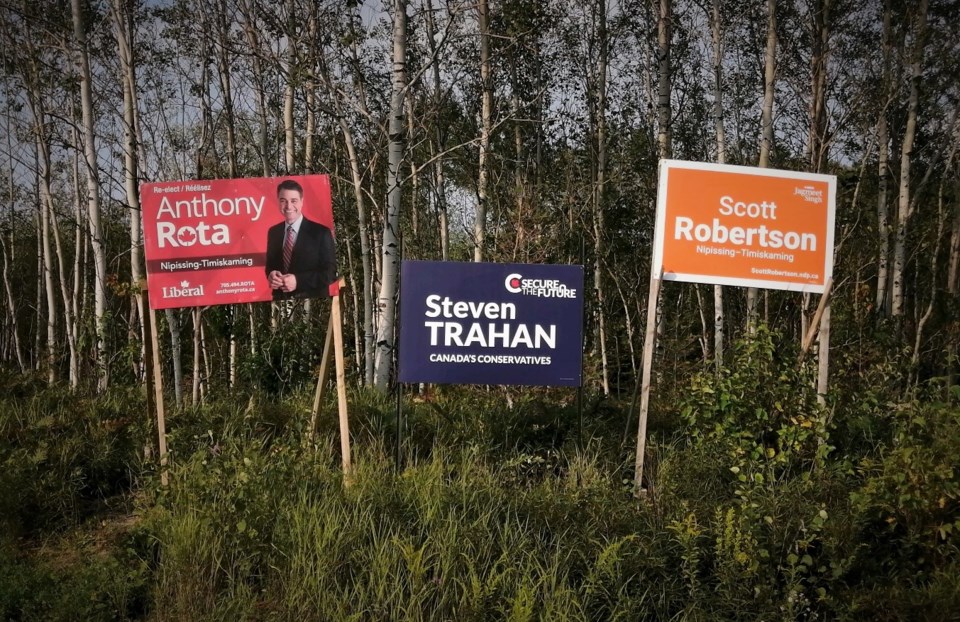Canadians deserve a better way of registering their preferences during and after elections. The current ‘first past the post’ method leads to a distorted accounting of political will, which fuels many of the problems that follow.
The all-or-nothing stakes also promotes some of the nastiness and skullduggery that makes campaigns inordinately toxic, suppressing genuine discourse and debate. Desperation apparently leads to immature name-calling, silly attack ads and spurious fundraising techniques.
Electing the best person in each riding based on their integrity, vision and ability should be enough but history has shown that to be a diminishing factor.
It’s a matter of providing clear direction to those in leadership positions. Democracy doesn’t work if voices are muted and twisted by those who end up at the House of Commons. There should be no confusion about mandates with an understanding that it’s not a blank cheque.
Of course, it’s a complicated venture and there are other issues. Allowing platforms to be constructed with hollow promises is a problem. There should be consequences for non-compliance. The way the party system corrupts the system is also an important factor, but those are separate issues.
First and foremost, elections should be an opportunity to offer clarity about what eligible voters want to see happen going forward. We spend an awful lot of money, time and effort to only get one piece of information: who gets to follow their party’s direction that’s decided after they form a government.
The fact that a party can form a majority government without a majority of the votes is a clear indication of the trouble.
Take the Nipissing-Timiskaming Riding for example, election results appear to hinge on the national mood for either the Liberals or Conservatives. It’s like going to a buffet and only being allowed one main course and none of the side dishes – even though you’re paying for diversity of taste.
It’s worth noting that the only time Liberal Anthony Rota won with more than half the ballots was in 2015 (with 51.8 per cent of the vote), the year they promised election reform. Not co-incidentally, the highest turnout (68.3 per cent of eligible voters) was registered that year.
It’s difficult to analyze the Nipissing-Timiskaming Riding results in the past election to predict what would happen if each ballot had representative potential. The amalgamation with the south-eastern portion of the Timiskaming-Cochrane Riding in 2004. It was also redistributed in 2012 with the right-leaning Hudson and Harris townships in the north removed and left-leaning Nipissing First Nation added.
But if you look at the totals, there appears to be a significant and consistent split that encourages divisions rather than any sense of common purpose. Even the spectrums on the left and right are at odds with each other, which results in more losers than winners every time we go to the polls.
This is the seventh federal election in 17 years with past election results for 2019, 2015, 2011, 2008, 2006 and 2004 indicating little of relevance.
Liberals with Rota on the ballot have garnered an increasing range of support from 18,000 to 25,000 over this time.
Conservatives with various candidates posted mixed results (rounded off): Al McDonald in 2004 – 16,000; Peter Chirico in 2006 – 16,500; Joe Sinicrope in 2008 – 13,400; Jay Aspin – elected by an 18-vote margin in 2011 with 15,495 but dropped to 14,300 in 2015), Jordy Carr in 2019 – 13,000.
The New Democrats have grown their vote from 7,300 to 9,700 in this time, despite intermittent dips depending on the candidate: Dave Fluri in 2004 – 7,300 and 2006 – 8,300; Dianna Allen in 2008 – 6,600; Rona Eckert in 2011 – 8,800; Kathleen Jodouin in 2015 – 7,900; and Rob Boulet in 2019 – 9,700.
Last election, the Green and People’s Party candidates Alex Gomm and Mark King attracted 3,111 and 2,500 votes respectively. Several other parties and candidates have also run.
Voting by true preference of party platforms (if we could trust them) or individual character (if they didn’t have to toe party lines) might lead to improved relations all around.
It’s too bad Liberal Leader Justin Trudeau was so eager to force an election this fall. It would have been advantageous to make some movement on his promise of election reform during the 2015 campaign.
At the very least, it would have given us the opportunity to try something different. Personally, I’d like to have two boxes for my X. One would be to ensure the lesser devil didn’t win and one to indicate which individual or party I’d support if it meant their policies held some sway in Ottawa.
I’d also like a chance to vote on big issues during mandates, just in case they develop political amnesia or become drunk with power – like calling an unnecessary and reckless snap election during pandemic.
Dave Dale is a veteran journalist and columnist who has covered the North Bay area for more than 30 years. Reader responses related to his work can be sent to [email protected]. To contact the writer directly, email: [email protected] or check out his website www.smalltowntimes.ca



